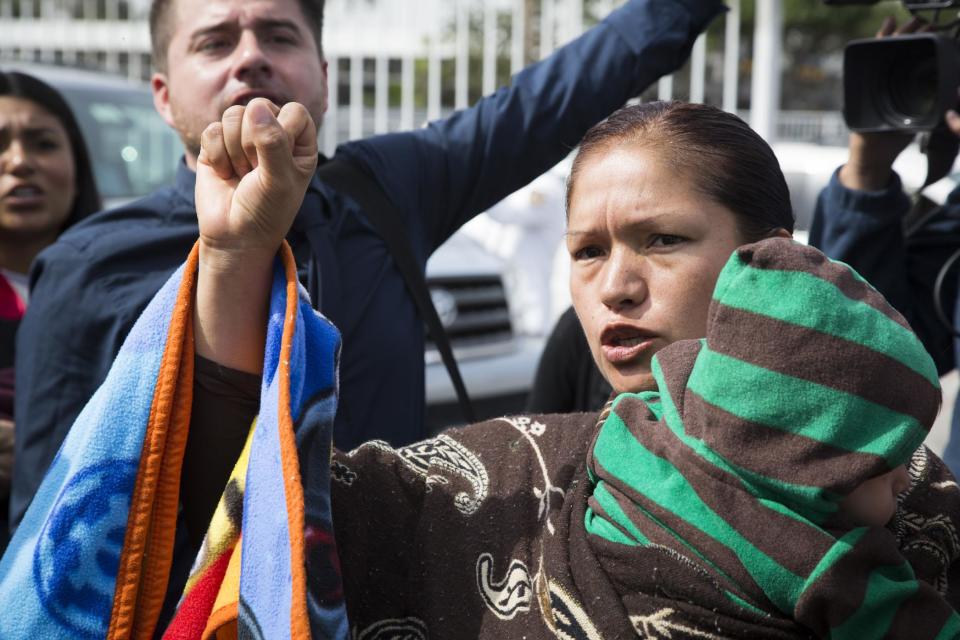Deported immigrant activist asks for US asylum
TIJUANA, Mexico (AP) — A Mexican immigrant rights advocate who gained international attention in 2007 when she took refuge in a Chicago church before being deported from the United States has presented herself to U.S. border inspectors and asked for asylum on Tuesday.
Elvira Arellano and 20 other Mexican and Central American migrants crossed into the United States from the border city of Tijuana as part of a protest to demand an overhaul of U.S. immigration laws and an end to deportations.
Arellano was deported to Mexico after seeking sanctuary at a Chicago church for a year. She was deported without her U.S.-born son.
Arellano, 38, said she is asking for asylum in the U.S. because she has received threats in Mexico because of her activism and because she wants a better future for teenage son.
"I am requesting asylum in the United States on humanitarian grounds, because I am a defender of human rights in Mexico and I have received kidnapping and violence threats," Arellano said before entering the U.S. and violence. "But more importantly, because they have separated my son for his chance to have a good upbringing."
Arellano was deported on Aug. 19, 2007, to Tijuana, where she founded a home for deported migrants and began speaking publicly speaking about the complex reality of migrant families and how deportations are making their lives more difficult.
President Barack "Obama has to stop the deportations and allow us to be with our families," she said.
Demonstrators known as "dreamers" first claimed asylum at border crossings in Arizona and Texas last year. They call themselves "dreamers" after the Dream Act, failed legislation that was designed to allow some young immigrants to stay in the U.S.
U.S. Customs and Border Protection said privacy laws prohibit the agency from saying what happened to those who have tried to enter the country and asked for asylum.
People who claim asylum are interviewed by authorities to determine if their claims are credible, then either released or held pending the outcome of cases. To grant asylum, an immigration judge must find that an applicant suffers persecution or has a well-grounded fear of persecution on grounds of race, religion, nationality, membership in a social group or political opinion.


